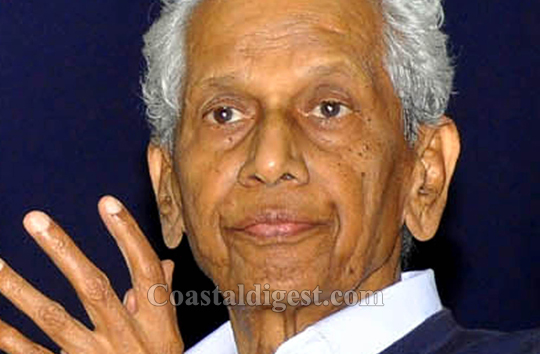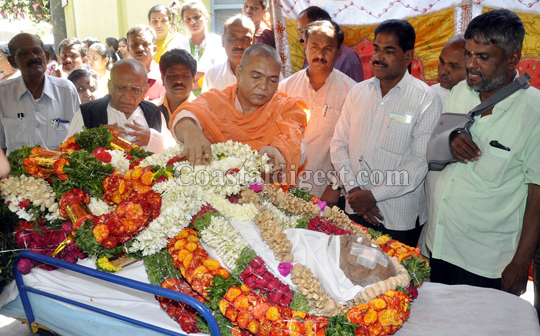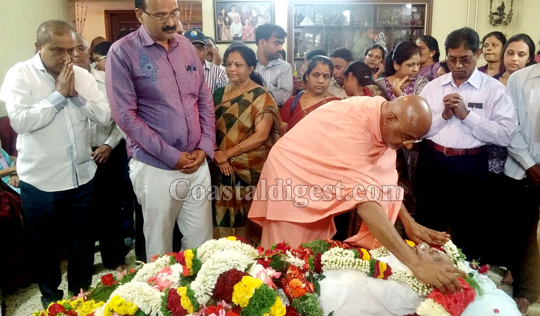Bengaluru, Feb 5: Noted Kannada writer Sa Shi Marulayya died of heart failure at Jayadeva Institute of Cardio Vascular Sciences and Research early on Friday. His body has been donated to JSS medical college, Mysore.

According to Dr C N Manjunath, director, Jayadeva Institute, 86-year-old Marulayya breathed his last at 7.30 am after his heart stopped functioning.
"He has been a cardiac patient for several years now. His heart functioning was just minimal since the last 15 years. This time, even his lungs were not functioning well," he added.
The writer was admitted to the Hospital on January 22 in a semi conscious state and was disoriented. Later, his condition deteriorated and he died according to doctors.







Comments
I pay a visit every day a few web pages and information sites to
read posts, but this website gives feature based articles.
Also visit my homepage best used digital piano: http://bongomarket.com/user/profile/8083
Hey just wanted to give you a quick heads up. The text in your article seem
to be running off the screen in Internet explorer. I'm not sure if this is a format issue or something
to do with browser compatibility but I figured
I'd post to let you know. The design and style look great though!
Hope you get the issue solved soon. Kudos
My webpage :: digital stage
piano reviews: http://Job.Sxmtxy.Com.cn/comment/html/index.php?page=1&id=48788
I was recommended this blog by my cousin. I am no longer sure whether or not this post is written via him as nobody else understand such targeted approximately my trouble.
You are wonderful! Thanks!
Here is my blog post; best
digital pianos with weighted keys: http://www.yinyouji.com/comment/html/index.php?page=1&id=103448
I am really impressed with your writing skills as
well as with the layout on your blog. Is this a paid theme or
did you customize it yourself? Anyway keep up the nice quality writing, it's rare to see
a nice blog like this one nowadays.
Also visit my website ... best beginner digital piano: http://Nsgtxx.com/comment/html//index.php?page=1&id=25634
Add new comment